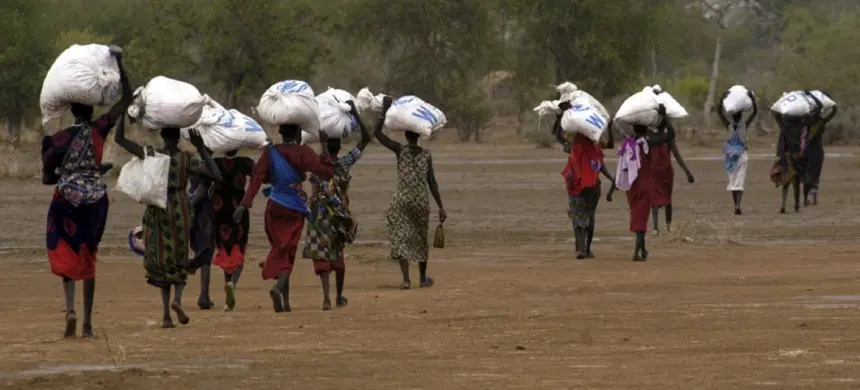South Sudan is grappling with a deepening food crisis, as conflict, displacement, and disease push communities to the brink of famine, particularly in the Upper Nile state. According to the latest Integrated Food Security Phase Classification (IPC) report, nearly 7.7 million people 57 percent of the population are experiencing acute food insecurity, with the situation worsening dramatically in conflict-hit areas.
Upper Nile state stands out as the epicenter of this emergency. Eleven of its thirteen counties are now at IPC Phase 4 (Emergency) levels, while in Nasir and Ulang counties, the situation is so dire that a famine is possible under a worst-case scenario. The escalation in hostilities since March including intense clashes and aerial bombings has displaced thousands. The number of people in Catastrophic (IPC Phase 5) conditions in Upper Nile has now surged to 32,000, more than triple earlier estimates.
The ongoing conflict has not only forced families from their homes but also cut off access to markets and humanitarian aid. “Conflict doesn’t just destroy homes and livelihoods, it tears communities apart,” said Mary-Ellen McGroarty of the World Food Programme (WFP). “It is critical our teams are able to access and safely distribute food to families caught in conflict to prevent famine.”
While some counties have seen food security improve—from IPC Phase 4 to Phase 3—due to better harvests and sustained aid, experts warn that peace is the key determinant of progress. “Improvement in ten counties is clear testament of the dividends of peace,” said FAO’s Meshack Malo.
Meanwhile, malnutrition among children and mothers is rising sharply, worsened by a cholera outbreak. Over 2.3 million children across South Sudan are now at risk of acute malnutrition, up from 2.1 million earlier this year. Access to health and nutrition services remains limited in many affected areas, further complicating efforts to address the crisis.
With humanitarian access severely constrained and needs escalating rapidly, aid agencies are sounding the alarm. Immediate action is needed to avert a humanitarian catastrophe in South Sudan.

